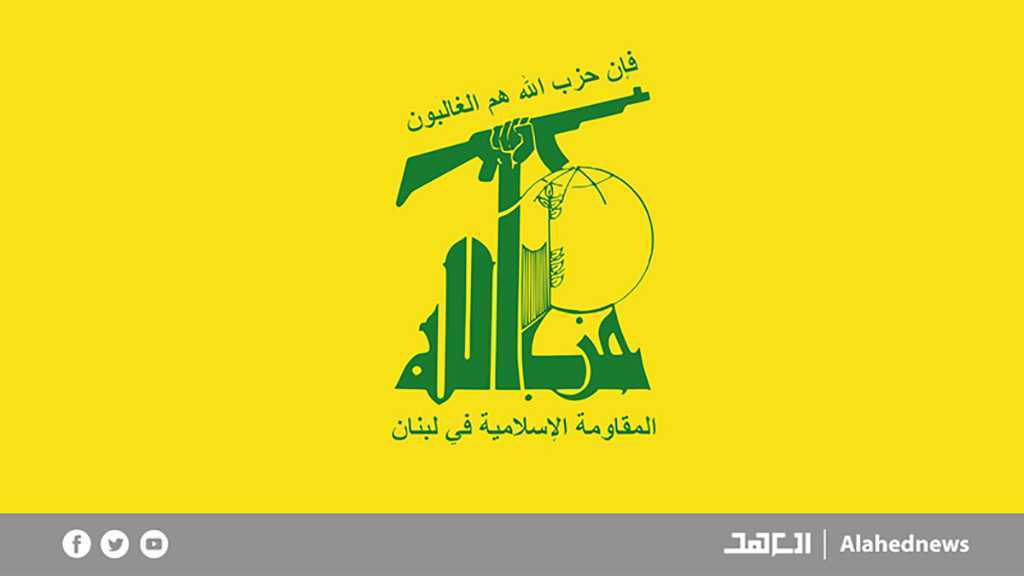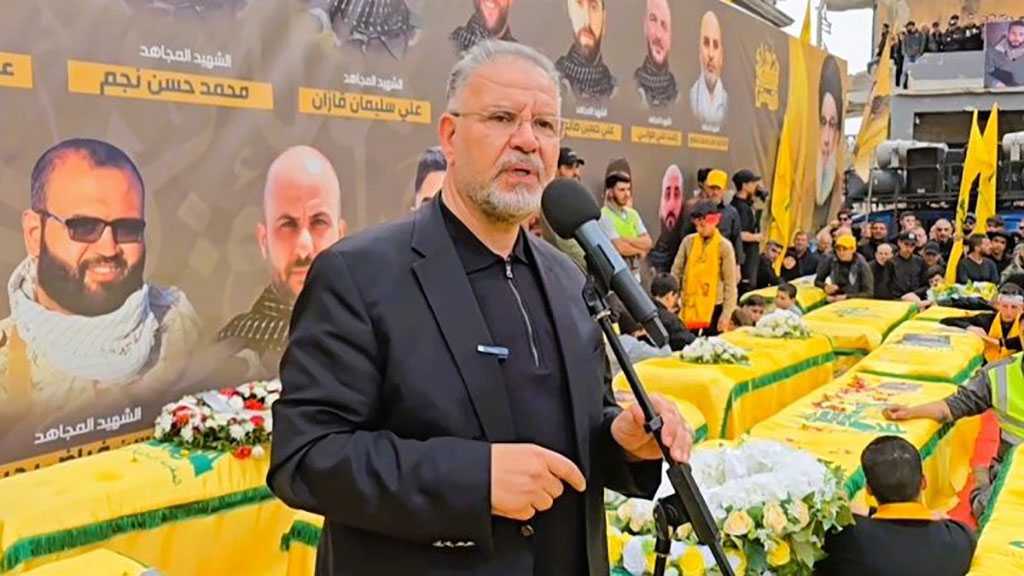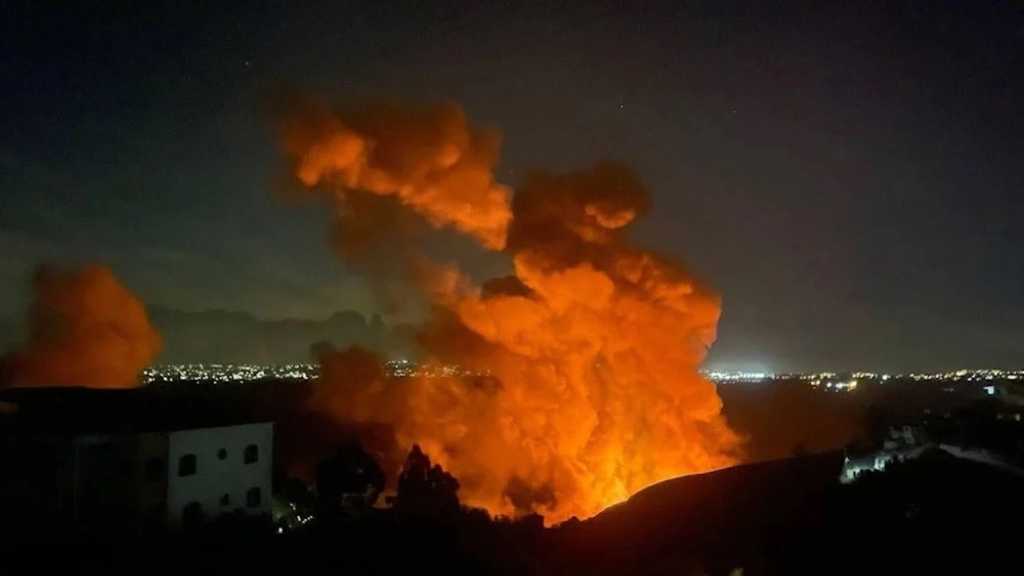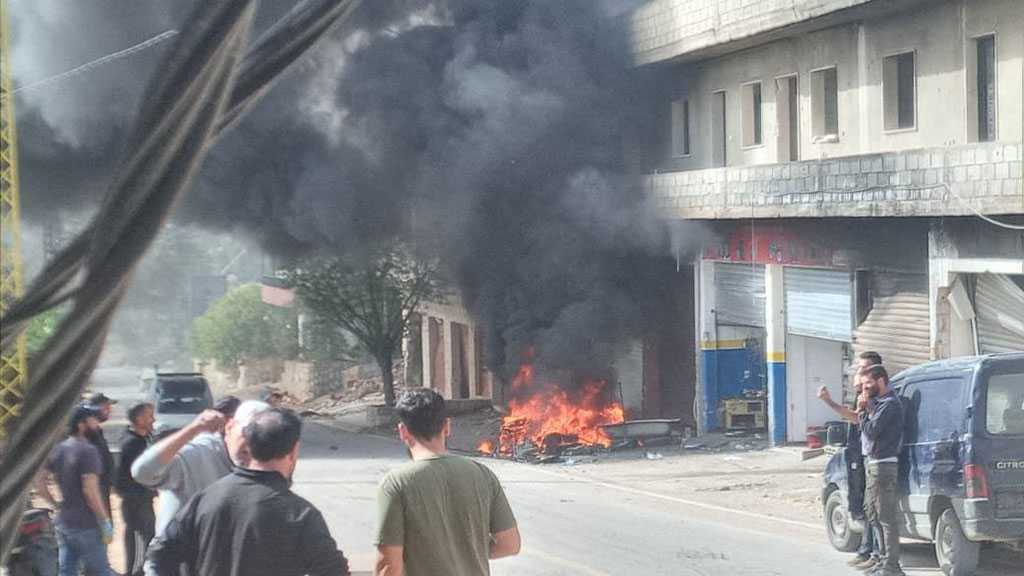Salloukh backs ban on use of cluster bombs ~ Treaty seeks to outlaw weapons

By Andrew Wander
Source: Daily Star, 12-11-2008
BEIRUT: Foreign Minister Fawzi Salloukh has urged countries around the world to outlaw the use of cluster bombs by signing an international treaty at a conference to be held in Norway next month. Speaking in Beirut on Tuesday to delegates at a conference held in preparation for the signing of the treaty, Salloukh said that "Israel's" use of cluster bombs during the 2006 war had given Lebanon first-hand experience of the suffering they can cause long after the conflict has ended.
"This heavy legacy of the July war still causes a human toll," he told delegates from countries around the Middle East. "The farms and fields have been transformed into traps for civilians."
He said that efforts to create an international treaty that would outlaw the use of cluster munitions had gone better than anyone could have predicted, and called for countries to sign up to the convention when it opens for signature in Oslo on December 3.
"We call for solidarity and support for the ban on cluster munitions," he said. "The convention has surpassed the expectations of everybody."
His comments were echoed by the UN's resident coordinator for Lebanon, Marta Ruedas, who noted that the weapons could kill and maim civilians in peacetime as well as war. "They [cluster munitions] continue to cause death and suffering long after the conflict has finished," she told delegates.
She warned that billions of cluster munitions had been stockpiled by the world's military powers. "If these stocks were to be used, we would witness another humanitarian catastrophe," she said. The convention on cluster munitions will not only ban the use of the weapons, but also their production, transfer and storage.
The process of creating a treaty on cluster munitions began in the months after "Israel"'s controversial use of the weapons during the 2006 war, which saw South Lebanon carpeted with millions of unexploded bomblets, most dropped during the last days of the conflict when a cessation of hostilities was in the offing.
A coalition of NGOs and mine-clearing professionals came together after the war and demanded that cluster munitions be outlawed, pointing to the high proportion of civilian casualties the weapons caused. To date, 327 civilians in Lebanon have been killed or wounded by the bombs.
In February 2007, a group of countries led by Norway launched an initiative to create an international treaty banning the use of cluster munitions by the end of 2008. Since then, 111 countries - a majority of UN member states - have stated their intention to sign the treaty.
"Israel", the United States, Russia and China have all refused to sign the UN-backed treaty, but activists hope that its existence will stigmatize supporters of the weapons and eventually lead to their use being considered unacceptable.
Delegates from other governments in the region attended the conference, which saw a collection of mine clearers, military officials and NGO representatives speak about the issues surrounding cluster munitions and their clearance.
Activists working on the issue said governments owed it to civilian victims of the weapons to sign the treaty. Habbouba Aoun of the Landmine Resource Center said: "As with land mines, the best way to respect the memory of those killed by cluster munitions in Lebanon and elsewhere is to stop this weapon from ever being used again. To better support cluster munitions survivors, governments should sign this convention in Oslo."
The weapons have left an economic as well as human impact on Lebanon, the conference heard. "The presence of cluster munitions has slowed Lebanon's ability to recover from the 2006 aggression and have caused economic hardship on land owners who cannot rebuild their houses or harvest their crops," Brigadier General Mohammad Fehmi, the director of the Lebanon Mine Action Center, told delegates.
He said that the convention banning cluster munitions was a "much-needed treaty" that would "ensure that the effects of these weapons on innocent civilians will never be seen again."
Source: Daily Star, 12-11-2008
BEIRUT: Foreign Minister Fawzi Salloukh has urged countries around the world to outlaw the use of cluster bombs by signing an international treaty at a conference to be held in Norway next month. Speaking in Beirut on Tuesday to delegates at a conference held in preparation for the signing of the treaty, Salloukh said that "Israel's" use of cluster bombs during the 2006 war had given Lebanon first-hand experience of the suffering they can cause long after the conflict has ended.
"This heavy legacy of the July war still causes a human toll," he told delegates from countries around the Middle East. "The farms and fields have been transformed into traps for civilians."
He said that efforts to create an international treaty that would outlaw the use of cluster munitions had gone better than anyone could have predicted, and called for countries to sign up to the convention when it opens for signature in Oslo on December 3.
"We call for solidarity and support for the ban on cluster munitions," he said. "The convention has surpassed the expectations of everybody."
His comments were echoed by the UN's resident coordinator for Lebanon, Marta Ruedas, who noted that the weapons could kill and maim civilians in peacetime as well as war. "They [cluster munitions] continue to cause death and suffering long after the conflict has finished," she told delegates.
She warned that billions of cluster munitions had been stockpiled by the world's military powers. "If these stocks were to be used, we would witness another humanitarian catastrophe," she said. The convention on cluster munitions will not only ban the use of the weapons, but also their production, transfer and storage.
The process of creating a treaty on cluster munitions began in the months after "Israel"'s controversial use of the weapons during the 2006 war, which saw South Lebanon carpeted with millions of unexploded bomblets, most dropped during the last days of the conflict when a cessation of hostilities was in the offing.
A coalition of NGOs and mine-clearing professionals came together after the war and demanded that cluster munitions be outlawed, pointing to the high proportion of civilian casualties the weapons caused. To date, 327 civilians in Lebanon have been killed or wounded by the bombs.
In February 2007, a group of countries led by Norway launched an initiative to create an international treaty banning the use of cluster munitions by the end of 2008. Since then, 111 countries - a majority of UN member states - have stated their intention to sign the treaty.
"Israel", the United States, Russia and China have all refused to sign the UN-backed treaty, but activists hope that its existence will stigmatize supporters of the weapons and eventually lead to their use being considered unacceptable.
Delegates from other governments in the region attended the conference, which saw a collection of mine clearers, military officials and NGO representatives speak about the issues surrounding cluster munitions and their clearance.
Activists working on the issue said governments owed it to civilian victims of the weapons to sign the treaty. Habbouba Aoun of the Landmine Resource Center said: "As with land mines, the best way to respect the memory of those killed by cluster munitions in Lebanon and elsewhere is to stop this weapon from ever being used again. To better support cluster munitions survivors, governments should sign this convention in Oslo."
The weapons have left an economic as well as human impact on Lebanon, the conference heard. "The presence of cluster munitions has slowed Lebanon's ability to recover from the 2006 aggression and have caused economic hardship on land owners who cannot rebuild their houses or harvest their crops," Brigadier General Mohammad Fehmi, the director of the Lebanon Mine Action Center, told delegates.
He said that the convention banning cluster munitions was a "much-needed treaty" that would "ensure that the effects of these weapons on innocent civilians will never be seen again."




